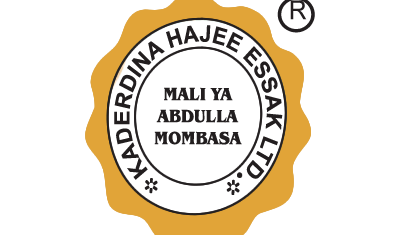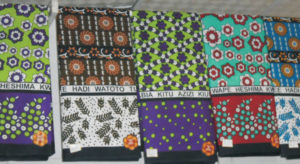The Kaderdina family of Mombasa is the pioneer of the leso business in Kenya. Kaderdina Hajee Essak Limited was established in the year 1887. There is a very intriguing story behind how it came into existence.
Our story starts sometime in early forties of the nineteenth century. The place is Kutch Mandvi. For centuries Mandvi was the principal port of Kutch and Gujarat and remained so until the rise of Mumbai. A young boy in his early teens would often go the seashore near the port of Mandvi and gaze for hours at the sea. He would then stand at the Tower of Wagers where wealthy ship-owners would gather in May to scan the horizon waiting for the return of the trading fleet from East Africa. They would often bet on whose ship would arrive first. That excited this young lad. Little did he know that very soon he too would travel in one of those ships and go and settle in one of the East African ports.
This man was none other than the late Mr. Essak, the great, great grandfather of the present Kaderdina generation. He was also the father of AbdulKader, also popularly known as Kaderdina. The late Kaderdina, incidentally, was the man who was responsible for establishing Kaderdina Hajee Essak Ltd., the firm that has now become a household name among the local women who passionately love lesos.
Our young and enterprising hero Essak soon developed a very strong liking for the sea and for travel by sea and in no time that liking turned into a passion. When he could no more control his wanderlust, he jumped on board a ship destined to travel to a land hitherto unknown to him. The year was 1843. After what seemed a lifetime the ship he was travelling in landed at the port of Unguja in Zanzibar. In Zanzibar Essak was taken into employment by a Bhatia (a Hindu community also from Cutch) trader, with whom he worked for a few years.
During the same year he went to Mombasa. In Mombasa he prepared a caravan of porters to go on a trade expedition into the hinterland. Such an expedition that went up to Ukambani Plateau could last up to as long as three to four months. Barter remained the predominant form of trade at the time and as such in Ukambani Plateau he bartered beads, salt, sugar, calico (cotton cloth) and blankets with the African Chiefs, for ivory (elephant tusks), rhino horns, hides and skins in exchange. He then sent these items to Zanzibar from where they were exported to India and as far as China. Later on Essak decided to settle in Mombasa.
In the year 1907 he shifted the business in registered premises on Biashara Street.

